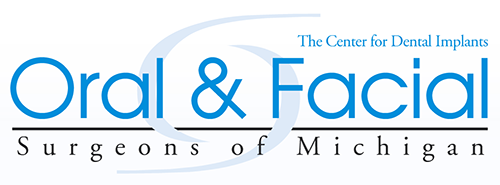Dental Implants
Dental implants are changing the way people live. They are designed to provide a foundation for replacement teeth that look, feel, and function like natural teeth. The person who has lost teeth regains the ability to eat virtually anything, knowing that teeth appear natural and that facial contours will be preserved. Patients with dental implants can smile with confidence.

What Are Dental Implants?
The implants themselves are tiny titanium posts that are surgically placed into the jawbone where teeth are missing. These metal anchors act as tooth root substitutes. The bone actually bonds with the titanium, creating a strong foundation for artificial teeth. Small posts that protrude through the gums are then attached to the implant. These posts provide stable anchors for artificial replacement teeth.
Implants also help preserve facial structure, preventing bone deterioration that occurs when teeth are missing.
Surgical Advances
Using the most recent advances in dental implant technology, we are often able to place single stage implants.
These implants do not require a second procedure to uncover them, but do require a minimum of six weeks of healing time before artificial teeth, or crowns, are placed. There are even situations where the implants can be placed at the same time as a tooth extraction – further minimizing the number of surgical procedures.
Advances in dental implant technology have made it possible, in select cases, to extract teeth and place implants with crowns at one visit, this procedure is called “immediate loading” of the dental implant.
Implants are a team effort between your oral and maxillofacial surgeon and your restorative dentist. While our Doctors will perform the actual implant surgery, initial tooth extractions, and bone grafting if necessary, the Restorative Dentist fits and makes the permanent prosthesis.
Your dentist will also make any temporary prosthesis needed during the implant process.
FREQUENTLY ASKED QUESTIONS
Why Select Dental Implants Over More Traditional Types Of Restorations?
There are several reasons:
Why sacrifice the structure of surrounding good teeth to bridge a space? In addition, removing a denture or a “partial” at night may be inconvenient, not to mention that dentures that slip can be uncomfortable and embarrassing.
Are You A Candidate For Implants?
If you are considering implants, your mouth must be examined thoroughly and your medical and dental history reviewed. If you mouth is not ideal for implants, ways of improving your outcome, such as bone grafting, may be recommended.
What Type Of Anesthesia Is Used?
The majority of dental implants and bone grafts can be performed in the office under local anesthesia, with or without the addition of general anesthesia. This will be discussed in detail at your initial consultation.
